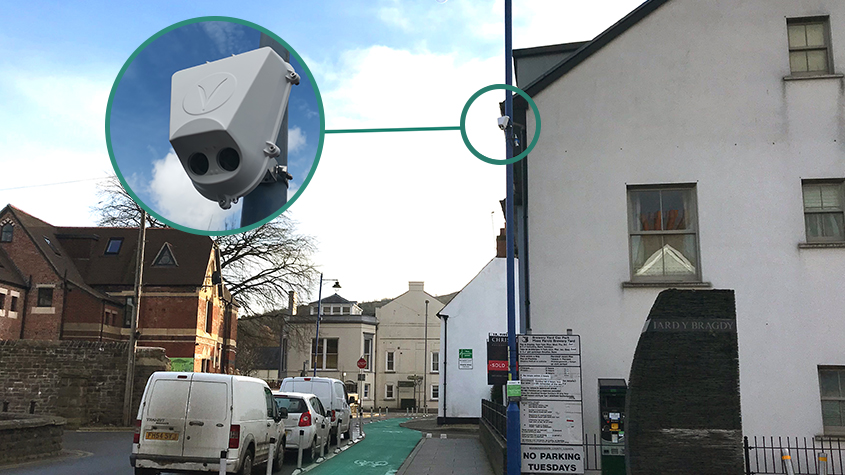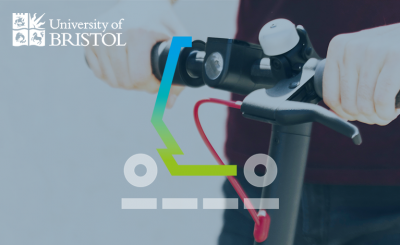- Contraflow cycle lane implemented in Abergavenny, Monmouthshire, to make it safer to cycle in the town
- Viva sensors installed in three locations to gather multi-modal count, path and speed data
- Monmouthshire County Council are using this data to assess if cycling has become more popular in the town as a result of the cycle lane and if vehicle speed has reduced as a consequence of the narrowing of road space
The Active Transportation (Wales) Act, 2013, legislates that all local authorities in Wales should map, plan and promote active transportation journeys, with particular emphasis on encouraging modal shift from cars to cycling and walking for every day short journeys. Last year, the Welsh Government invested £75 million in Active Transportation – more than any other country in the UK relative to population.
In South Wales, Monmouthshire County Council (MCC) secured funding for three bids for the locations: Caldicot, Monmouth and Abergavenny. The funding is being used in a variety of ways to make the county safer for cyclists and pedestrians, including traffic regulation orders and signage, a pedestrian and cycle bridge across the River Usk that connects Llanfoist and Abergavenny, and improving cycling routes around the town.
Problem: One-way traffic system is a barrier to active travel
Abergavenny has a one-way traffic system in its town centre. Studies have shown that one-way streets generally result in fewer collisions involving pedestrians due to reduced traffic turning movements. Whilst well designed one-way systems can make town centres more pedestrian friendly, the same cannot be said for cyclists.
One-way streets can negatively impact a cycling network. Faced with a one-way street some cyclists will cycle along pavements, others may illegally travel against the one-way traffic flow, or opt for a permitted but more hazardous route, along a busier main road.
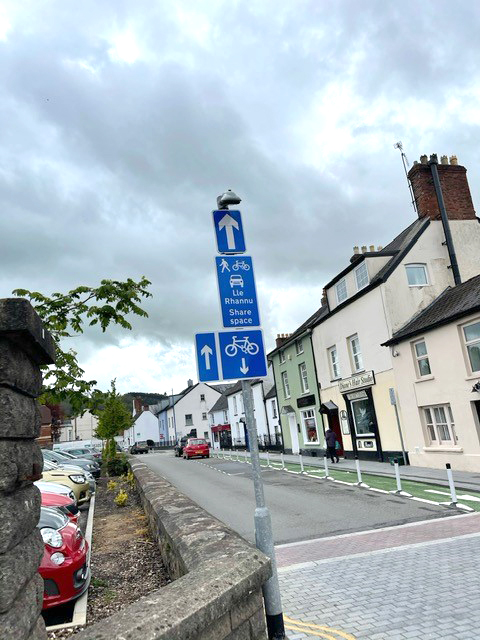
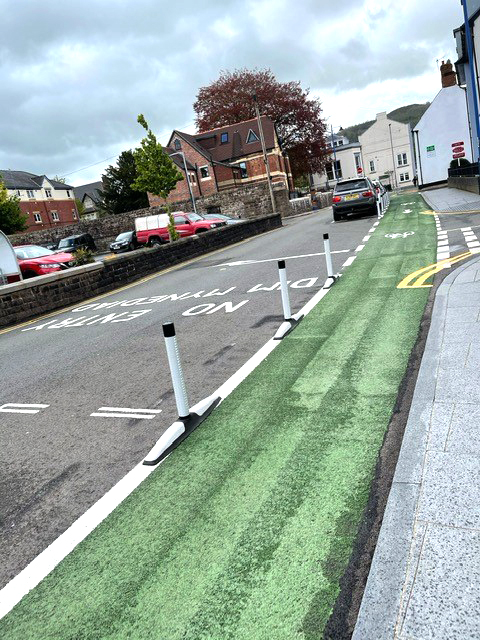
Solution: Contraflow cycle lane in town centre to make area safer for cyclists
To improve the provision for cycling in Abergavenny, MCC decided to implement a contraflow cycle lane along Lion Street. Prior to this intervention, one-way streets, including Lion Street, meant that cyclists wanting to travel from the eastern side of the town to its centre – from the train station to the town centre for example – had their route blocked, and were forced to use the A40 trunk road.
The objective of the contraflow lane is to improve cycling journey directness and negate cyclists travelling on more treacherous roads. In order to create space for the cycle lane, some on-street parking on Lion Street has been removed.

As well as making the area safer for cycling, granting cyclists two-way travel makes navigating Abergavenny by bike more efficient than by car, which should incentivise further modal shift, reducing congestion and improving local air quality.
Evaluating the Solution: Modal counts, speed and path insights
In order to evaluate the success of the intervention three Viva sensors were installed in July 2021 along Lion Street, mounted onto existing street furniture.
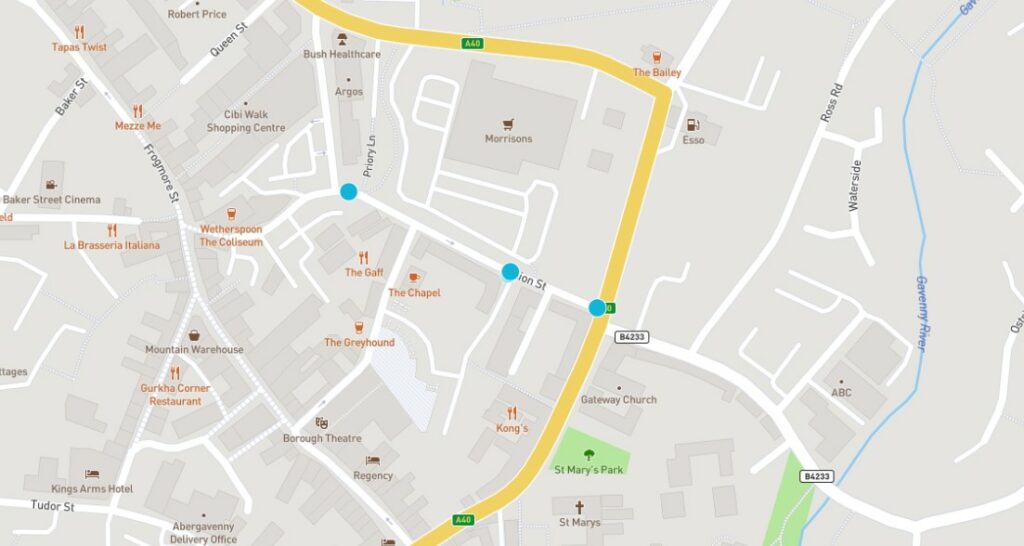
The Viva sensors capture modal counts, paths and speed data. These insights show how many cyclists are using the cycle lane and their average speed. Path data illustrates if cyclists are using the allocated cycle lane rather than the pavement. The data insights will also reveal if narrowing the road to make way for the cycle lane has impacted vehicle behavior and speed. Armed with these insights, MCC is able to assess the success of the cycle lane, both in terms of road safety and active transportation uptake.
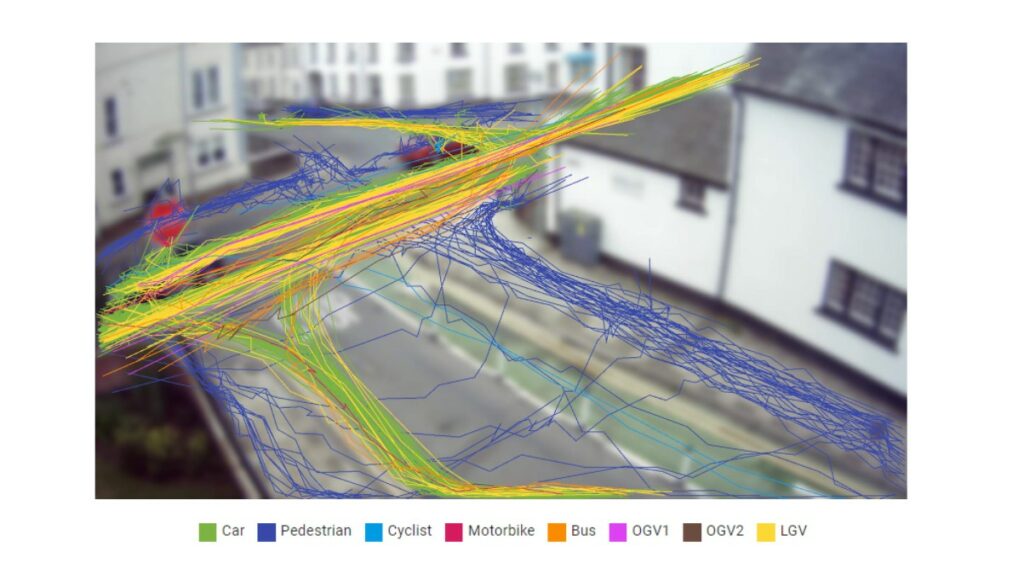
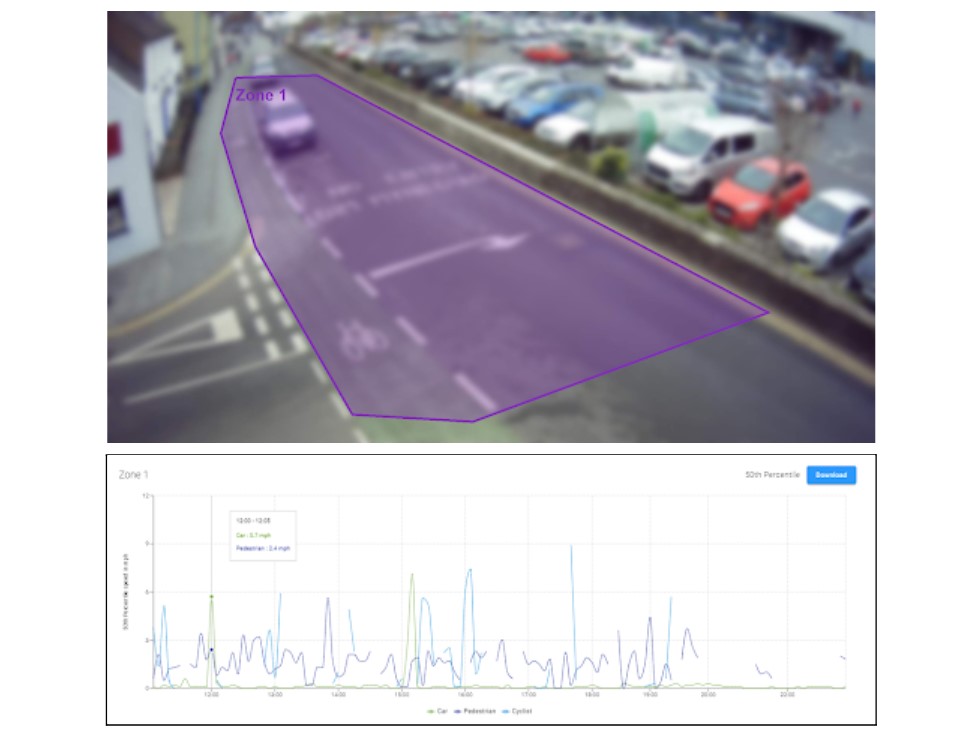
Please visit the Viva sensor technology page to find out more about how our solution works. Get in touch with our team and we would be happy to run a demo with no obligation or commitment.
Like our content? Sign up to our newsletter and receive the latest updates in your inbox.
Sign-Up
